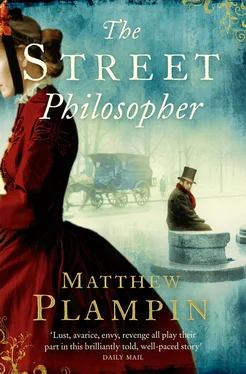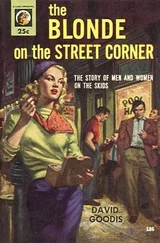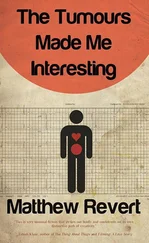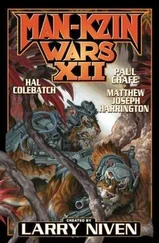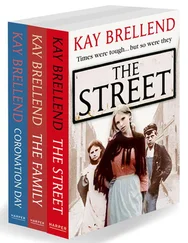Slowly, as Kitson and Styles worked their way along the column, the landscape around the Allied Army began to change, the wide, smooth plains rumpling up into a series of ridges and hollows. They passed several burning farmsteads, the trails of black smoke mirroring those issuing from the fleet steaming along to their right, out on the shining expanse of the Black Sea. This was not the work of mere looters–its purpose was obliteration, done to deny the invaders shelter and sustenance. The Russians were not far away.
The vanguard of the vast army was marked by a concentration of the richly coloured flags and banners that were dotted throughout the columns, and a large block of mounted officers that included several senior generals from the French and British forces. Kitson’s thirst, however, was now so intense as to confine his interest solely to locating Cracknell and obtaining something to drink. All in the British ranks suffered as he did; the correspondent grew increasingly mystified as to why no provision had been made to supply this basic want. The young illustrator, too, started to complain about his parched lips and throat. Kitson, his manner entirely serious, assured him that Cracknell would be waiting for them just past the next ridge, cradling a huge stone jug of water. He warmed to this notion, adding bunches of luscious grapes to the picture, and succulent Crimean melons, and ripe peaches too, all heaped plentifully at their senior’s feet. Styles could not help laughing at this unlikely vision.
The real Cracknell, however, continued to elude them. He was not bothering the cavalry, as Maynard had reported; a short distance inland, reconnaissance squadrons of scarlet-trousered hussars were galloping across the ridges entirely unimpeded, whooping and whistling as they went. Nor was he trying to speak to the generals. There was no sign of him anywhere. Their little quest was starting to seem hopelessly misguided.
Suddenly a febrile tremor ran through the mass of infantry. Hundreds of soldiers broke from a fatigued plod into a run. The few who still wore their packs shrugged them off; they surged between two low hills, entirely ignoring the protestations of their officers. The Courier men, buffeted by charging bodies, tried vainly to work out what was going on. Had artillery been sighted? Were these men running for cover–were Russian cannon about to be loosed? Unable to resist the human tide, they were carried along for fifty yards or more, past the hills and into a shallow valley, before being shoved to one side. The cause of the disruption was revealed. A small river, little more than a stream, was dissolving the infantry column as if it was made from dry sand.
Styles yelped in panic. ‘By Jove, Kitson, they’ll drink it all up!’
Kitson gave him a withering look. ‘Mr Styles, not even the British Army could drink up an entire river.’ He looked at the redcoats fighting to get at the trickle of muddy water–and was sorely tempted, for all his high-minded scorn, to rush down and join them. ‘We must bide our time.’
It was then that he noticed a familiar, stocky figure, standing atop a moss-spotted rock–the only person in that valley who seemed indifferent to the river. Cracknell had a telescope up to his eye, and was studying something with keen interest.
Kitson smiled, relieved to have finally tracked down their leader. He nudged Styles with his elbow. ‘Look at that, Mr Styles. As cool as if he was at the Epsom Derby.’ Cupping his hands around his mouth, he shouted out Cracknell’s name.
The senior correspondent lowered the telescope immediately and turned towards them. His face broke into a wide grin, and he yelled something back that could not be heard over the commotion down by the river. He started to point insistently.
This gesture directed his juniors to a company of horsemen, riding along the crest of the valley’s opposite side. They wore bearskin caps and embroidered kaftans bound at the waist by thick leather belts. Their long beards were brushed into sharp, two-pronged forks. Each had a barbed lance in his hand and a musket across his back. They were like nothing Kitson had ever seen before–irreducibly alien, like characters from a fantastical novel set in exotic eastern lands–and they were close , no more than a hundred yards away. Somewhere behind him, the Allied buglers began to sound. The men in the river looked up, falling quiet; a good number started to hurry back to their regiments.
The horsemen remained in full view for a few more moments, trotting on with deliberate insouciance, returning the scrutiny of the soggy redcoats. Then they spurred their mounts and were gone.
Cracknell’s voice thundered throughout the valley. ‘Cossacks, Thomas!’ he cried excitedly. ‘ The enemy !’
Manchester May 1857
1
The short, guttural howl was alarmingly loud, and seemed to come from directly below Kitson’s window. He started, dropping his pen, which then rolled across the threadbare rug and under his desk; he’d been pacing the attic’s meagre length in his shirtsleeves, trying to relieve the constricting ache in his chest whilst reading through the afternoon’s work. Before he realised fully what he was doing, he’d rushed from his rooms, down three flights of stairs and out through the tenement’s peeling doors.
Princess Street was shadowy and quiet, with only a couple of small tradesmen’s carts progressing along it. To his right, Kitson could see the brightly illuminated thoroughfares of the warehouse district, still heavily populated by both pedestrians and traffic despite the hour. The faint haze of factory exhalations, ever present in Manchester, hung about the street in silky drifts tinted orange by the distant gaslight.
Kitson listened for the sound again. A large crowd of spinners started up the street, clearly just released from their labours, strands of unwoven cotton still clinging to their rough clothes. He guessed that they were heading across town towards the concert rooms and drinking dens of Deansgate. Several already had bottles in their hands, which were being passed round with aggressive, determined merriment. After a burst of hard laughter, they began to belt out a bawdy song. ‘ She’s a rum- lookin’ bitch that I own to ,’ they roared, ‘ an’ there is a fierce look in ’er eyes… ’
Slipping into a side alley, Kitson walked along the tenement’s wide brick flank until he stood under his window. Back on Princess Street, the spinners strode noisily by; and then a gurgling moan came from somewhere up ahead, further down the alley. Kitson went towards it. Away from the neat grid of commercial streets around Piccadilly, of which Princess Street could just be considered a part, Manchester soon crumbled into a ramshackle maze of winding passages, interspersed with foul-smelling doorways and grubby, impassive casements. Where there were lights, the even yellows and oranges of gas were replaced by the glaring white-green of lime, lending a spectral pallor to the few who passed beneath them.
It took Kitson some minutes to locate the source of the moan. A man wrapped in a cloak lay sprawled in the corner of a stinking, unlit yard. It was too dark to see any more than this. He approached the stricken man slowly, crouching down and stating that he was there to help. The man merely whimpered in response. Relying on touch, as he had been taught, Kitson took the man–who was narrow-shouldered and light, and easily moved–in his arms and began to examine him. It had been many months, years in fact, since Kitson had performed such ministrations, yet he found that he had forgotten nothing; the medical procedure was still deeply impressed upon his mind. Feeling the glimmer of a long-lost confidence, he quickly discovered a metal object jutting out of the man’s side, something like a long nail with a catch of some sort at its end. There could be no doubt–this man was in serious danger, and had to be taken to a hospital as soon as possible. Kitson rose slightly to lift him, hoping to get the man to an alley where help could be obtained more easily.
Читать дальше
